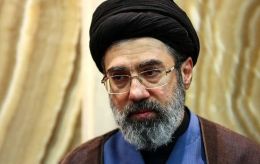Border issue: What is behind Poland-Ukraine conflict and how to reduce it
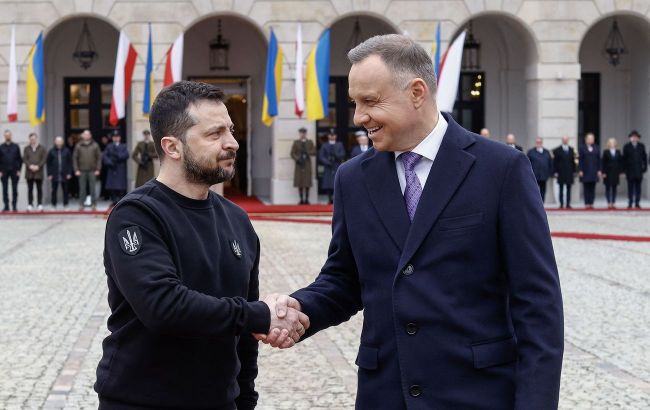 President of Ukraine Volodymyr Zelenskyy and President of Poland Andrzej Duda (Getty Images)
President of Ukraine Volodymyr Zelenskyy and President of Poland Andrzej Duda (Getty Images)
All about the myths and real causes of the Poland-Ukraine conflict and the blockade of the border, how it has affected the attitude of Poles and Ukrainians toward each other, and how Warsaw sees the situation in general in the RBC-Ukraine article.
Sources used in preparation of the article: public statements of Ukrainian and Polish officials, data from the sociological company InfoSapiens, the money.pl portal, materials from the conference of the Polish Centre Mieroszewski, exclusive comments from the coordinator of the Eastern Europe Program at the Polish Institute of International Affairs Daniel Szeligowski and the Vice-Director of the Mieroszewski Center Lukasz Adamski.
"The situation at the Polish border has long gone too far both economically and morally," said President Volodymyr Zelenskyy in his address on March 3. The protests of Polish carriers and especially farmers have already caused billions of losses to the Ukrainian economy. And, most importantly, the prospects for their resolution are absolutely uncertain.
In Ukraine, the actions of neighbors evoke open bewilderment: how can one strangle the economy of a country that is at war with a superior aggressor, how can one think about lost income or market share when the most massive combat actions in Europe since World War II are ongoing nearby? And photos of spilled grain, considering the dangers often associated with the harvest of Ukrainian crops, provoke justified outrage.
Despite all the inappropriateness of the current Polish-Ukrainian contradictions and the damage they cause (to the economies of both countries), the true picture of what is happening is still more extensive. Especially if one tries to look at it from the Polish side of the border, which is obviously the only way out of the situation.
It's not about elections
Conflicts related to Ukrainian grain and transportation began to escalate last year. In Ukraine, they were usually associated with the October parliamentary elections in Poland and quite naturally with the conditions of acute political competition raising the stakes. But the elections took place, the power in the country changed, and the problems with Poland not only did not resolve but, on the contrary, intensified. The blockade of the Polish-Ukrainian border became a real problem not only for individual sectors of the Ukrainian economy but also for the country as a whole.
Interlocutors of RBC-Ukraine in Polish expert circles explain that linking Polish-Ukrainian problems exclusively with elections was fundamentally wrong (although completely dismissing this factor is also incorrect).
"My personal impression is that everyone in Ukraine thought it was related to the Polish elections. Both Ukraine and the Ukrainian authorities decided that if this is an electoral issue, it will not be there after the elections. So, if it doesn't exist, there is no need to negotiate with the Poles. We just have to hold on, we have to wait, and after the elections a new Polish government will come in and solve everything. The Ukrainian side created high expectations of the Tusk government, and when they were not fulfilled, there was disappointment," said Daniel Szeligowski, coordinator of the Eastern Europe program at the Polish Institute of International Affairs.
In addition, shortly after the parliamentary elections and the formation of the new government, Poland entered another election campaign, this time for local elections on April 7 and 21. Once again, a very tough fight is expected as Donald Tusk's party will try to build on the success of the October elections and inflict a new defeat on the Law and Justice conservatives. To do this, it will need the support of the rural electorate, which makes up 40% of the population in Poland (although not all of them are employed in agriculture, of course).
After the local elections are over, Poland, like the rest of the European Union, will enter the decisive phase of the European Parliament elections to be held in June. And there will be presidential elections scheduled for May 2025 on the horizon. In other words, it is a priori wrong to expect that the problems between Kyiv and Warsaw will resolve on theor own "sometime after the elections."
Another popular simplification in Ukraine is to perceive the current conflict exclusively as a provocation by Russians and their Polish agents. Again, there is a certain truth in this, as acknowledged by Polish interlocutors of RBC-Ukraine. Especially considering the nature of some provocations (such as the famous poster with Putin on a tractor) and the political affiliation of certain protest leaders with the ultra-right pro-Russian party "Confederation".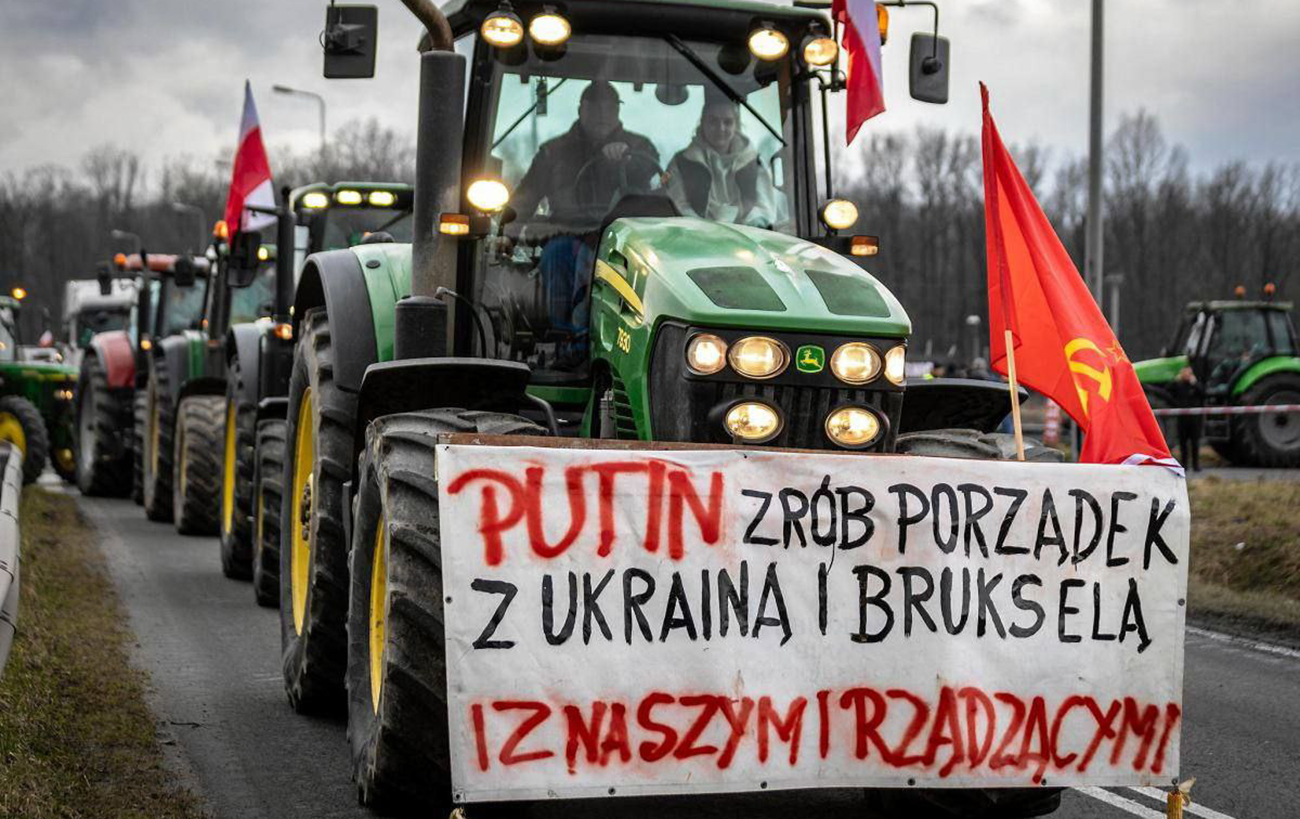
A provocative poster of Polish protesters (photo: RBC-Ukraine)
"Russia doesn't invent these problems, but it exploits them. The problem still exists. Therefore, it needs to be resolved as soon as possible, while it's still possible, before it goes too far because Russia has precisely seen that it can exploit this issue again, play against Poland, against Ukraine," says Szeligowski.
Thus, Russia evidently employs the same tactics here that it has been practicing for years in Ukraine and beyond: it takes a real problem and inflates it to the maximum, increasing tension and igniting hatred between opponents through the efforts of its influence agents, whether hidden or public, through offline provocations and internet trolls.
Grain and emotions
Both the Polish government and experts see more fundamental reasons for the current crisis than elections or Russian provocations. As mentioned in a comment to RBC-Ukraine, Vice-Director of the Polish Mieroszewski Centre, Lukasz Adamski, the underlying cause is the overly accelerated process of Ukraine's European integration and its accession to the European single market.
"This decision was made in the spirit of solidarity with the country that suffered terrible attacks from Russia two years ago. And now Poland, as a country bordering Ukraine, is feeling the consequences of this decision the most. That is, the objective reason is the different conditions for the functioning of enterprises in the EU and in Ukraine, in a situation where the customs barrier has largely disappeared," Adamski says.
The expert is referring to the EU's decision to temporarily suspend import quotas and duties on Ukrainian products, introduced in June 2022 and subsequently extended until June 2024. It was difficult to overestimate its importance for Ukraine, especially in 2022: the country experienced a catastrophic economic shock due to the full-scale invasion of Russia, the destruction of thousands of production and logistics chains, and the only real export destination at one point was the border with the European Union.
It is only natural that in such circumstances, Ukrainian exports to the EU, primarily of agricultural products, grew rapidly, and for some items, several times or even tenfold. This was the basis of the thesis about "Ukrainian grain flooding Europe," which was later taken to an absolute and declared by the protesters to be almost the main cause of their problems.
In reality, this is a blatant exaggeration. "Economists remind us that Poland has a positive trade balance with Ukraine, and a bigger problem for farmers is inflation and Russia flooding the world with cheap grain," says the Polish portal money.pl.
Indeed, Polish agriculture is essentially dependent on subsidies from the European Union (Poland is the fifth largest recipient of such subsidies in the EU), and after the explosive rise in global food prices associated with Russia's full-scale invasion of Ukraine, prices began to fall rapidly - this is the key problem for Polish farmers. And even before the first restrictions were introduced last spring, the volume of Ukrainian grain supplies to Europe had also begun to fall steadily. And since April of last year, Poland has not imported Ukrainian corn, rapeseed, sunflower, and wheat, and as you can easily see, this has not solved the problems of Polish farmers.
Clearly, there will be many more discussions ahead between Ukrainian, Polish, and Brussels officials. It's enough to assess the polarity of positions: while the European Commission decided to extend duty-free access for Ukrainian goods until June 2025 (with a number of reservations regarding agricultural products), Poland's Deputy Minister of Agriculture, Michal Kolodziejczak, calls for closing the Polish market to Ukrainian agricultural products for 20 years, once Ukraine joins the EU. And for now, Warsaw advocates for the return of trade rules that existed between Ukraine and the EU before the start of the full-scale Russian-Ukrainian war.
Economic interests are undoubtedly the most important, but far from the only aspect of the Polish-Ukrainian conflict. Various fakes and emotions from all participants in the process almost instantly began to overlap. For example, in Poland, stories circulated about the supposedly terrible quality of Ukrainian agricultural products and even a video clip about how Polish poultry was allegedly poisoned by them.
"This is just stirring up emotions on social media by the same old Russian agents. But it's not just them, of course, because there is objective anxiety, but the agency is just adding fuel to the fire, causing unnecessary emotions on both sides. It is also a mechanism of hasty generalization. What do we read? 'Poles block the border in Ukraine'. Or what do we read? 'Ukrainians are blocking the exhumation' (of the graves of Polish soldiers from the Second World War - ed.). We have to put out our emotions and fight this," Lukasz Adamski lists other reasons for the conflict.
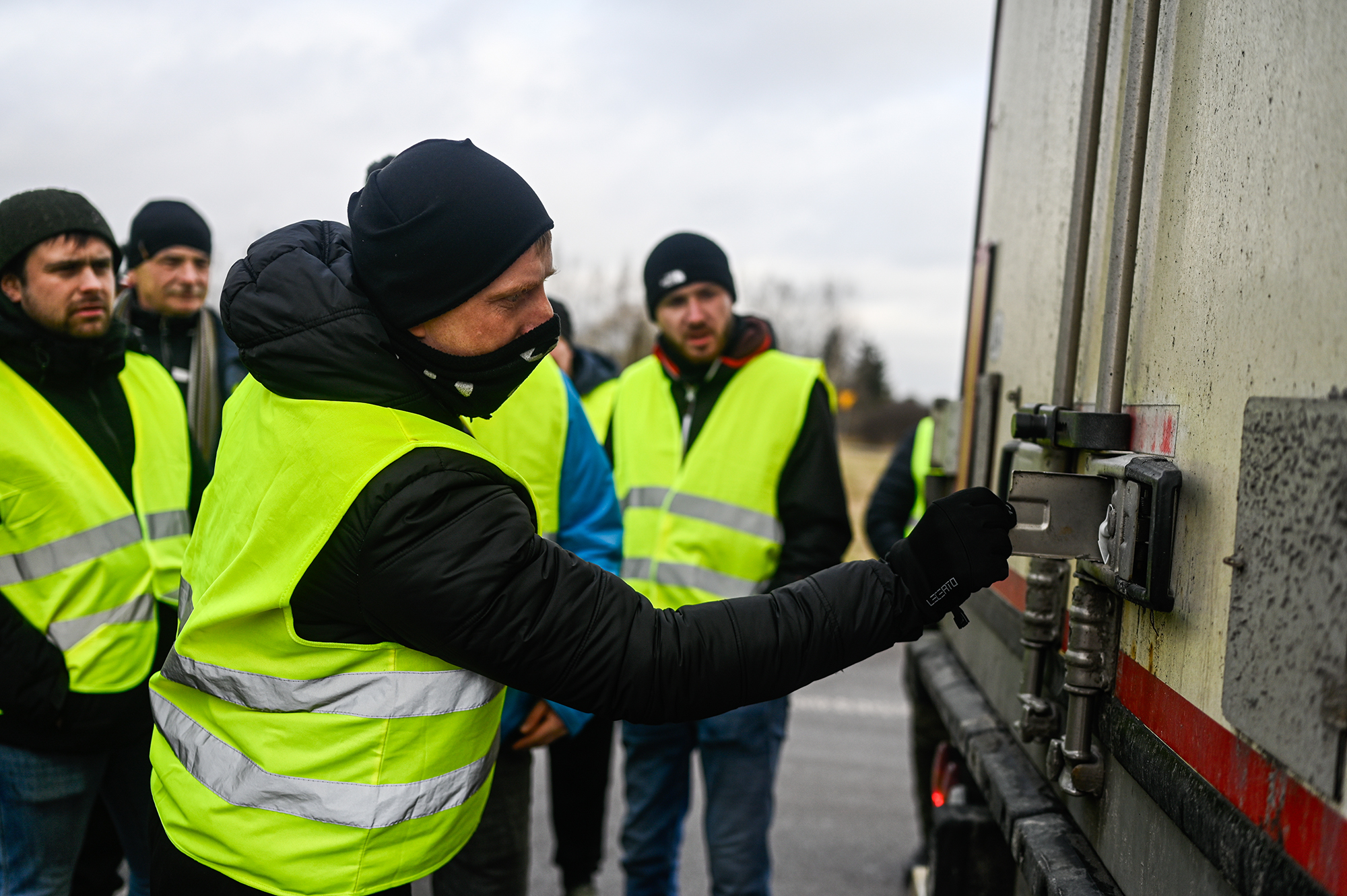
Polish protesters "inspect" a car at the border (photo: Getty Images)
Manipulating facts, oversimplifying the picture of events, playing on the emotions of the electorate, spreading blatant fakes - Polish politicians are adept at using these methods no worse than their Ukrainian colleagues. Moreover, the Ukrainian leadership has made public mistakes in this story more than once.
For instance, Zelenskyy's speech at the UN General Assembly in September last year is still often mentioned in the Polish media space. "It is alarming to see how some in Europe, some of our friends in Europe, play out solidarity in a political theater – making a thriller from the grain. They may seem to play their own role but in fact, they are helping set the stage for a Moscow actor," said the Ukrainian president at the time.
Zelenskyy did not directly mention Poland, but from the context, it was quite clear that he was referring to it. And the Poles were sincerely outraged that the Ukrainian leader essentially accused them of working for Moscow, while Poland objectively and from the first day of the war provided Ukrainians with enormous assistance: from military-logistical to hosting millions of refugees. The thesis of the "ungrateful Ukraine" resonated well with the Polish masses (probably not without the participation of Russians) and is still regularly voiced in network discussions.
It's surprising that under these conditions, the longstanding factor of Ukrainian-Polish contradictions - historical, in particular, the events in Volyn in 1943 - did not become more relevant. Of course, Polish public figures rarely mention this, but overall, it seems that both sides understand that the activation of events from 80 years ago under current conditions is maximally inappropriate.
But even without it, what first was a purely economic conflict could not but affect the mutual attitude of Poles and Ukrainians towards each other. According to a study by InfoSapiens, if in 2022, 83% of Ukrainians had a positive attitude towards Poles, now only 44% do (however, only 9% have a negative attitude, the rest are neutral).
In turn, almost 70% of Poles support further provision of military and economic assistance to Ukraine. Meanwhile, even more Poles support the protests of their farmers.
This paradox is not understood in Ukraine: here, the border blockade is perceived as openly anti-Ukrainian actions that undermine the country's position in the fight against the aggressor. "From the Polish side, helping Ukraine on a strategic level, both in terms of the war and in terms of integration with the European Union, does not contradict the fact that Poland wants and will protect its domestic market. Moreover, the sooner this conflict is resolved, the more maneuvering room the Polish government will have in terms of helping Ukraine," explains Daniel Szeligowski.
Such support figures for Polish protests by the population explain the policy of the current Polish government. No matter how friendly Donald Tusk might be towards Brussels and Kyiv, he is not elected by EU bureaucrats or Ukrainian residents. On the other hand, a sign of wise political leadership is to combine the implementation of popular demands with the protection of real, strategic interests of one's country, even if some steps are unpopular among voters.
There is another important point: the current Polish-Ukrainian conflict and the protests of farmers are only part of the overall European story that most Ukrainians, for understandable reasons, don't have time to track.
Farmers are protesting now, blocking roads, burning tires, and clashing with the police in various EU countries, and the reason for their dissatisfaction is no longer related to Ukraine but to the norms of the pan-European "Green deal," in particular, restrictions on the use of pesticides, carbon footprint limitations, etc.. In some EU countries, there are their own requirements: to limit the import of agricultural products from North Africa or South America, to leave fuel privileges and subsidies, and so on.
Each time, protesters look for the most sensitive points to pressure the government. And in the case of Poland, it became the blockade of the border with Ukraine, which attracted special attention for understandable reasons.
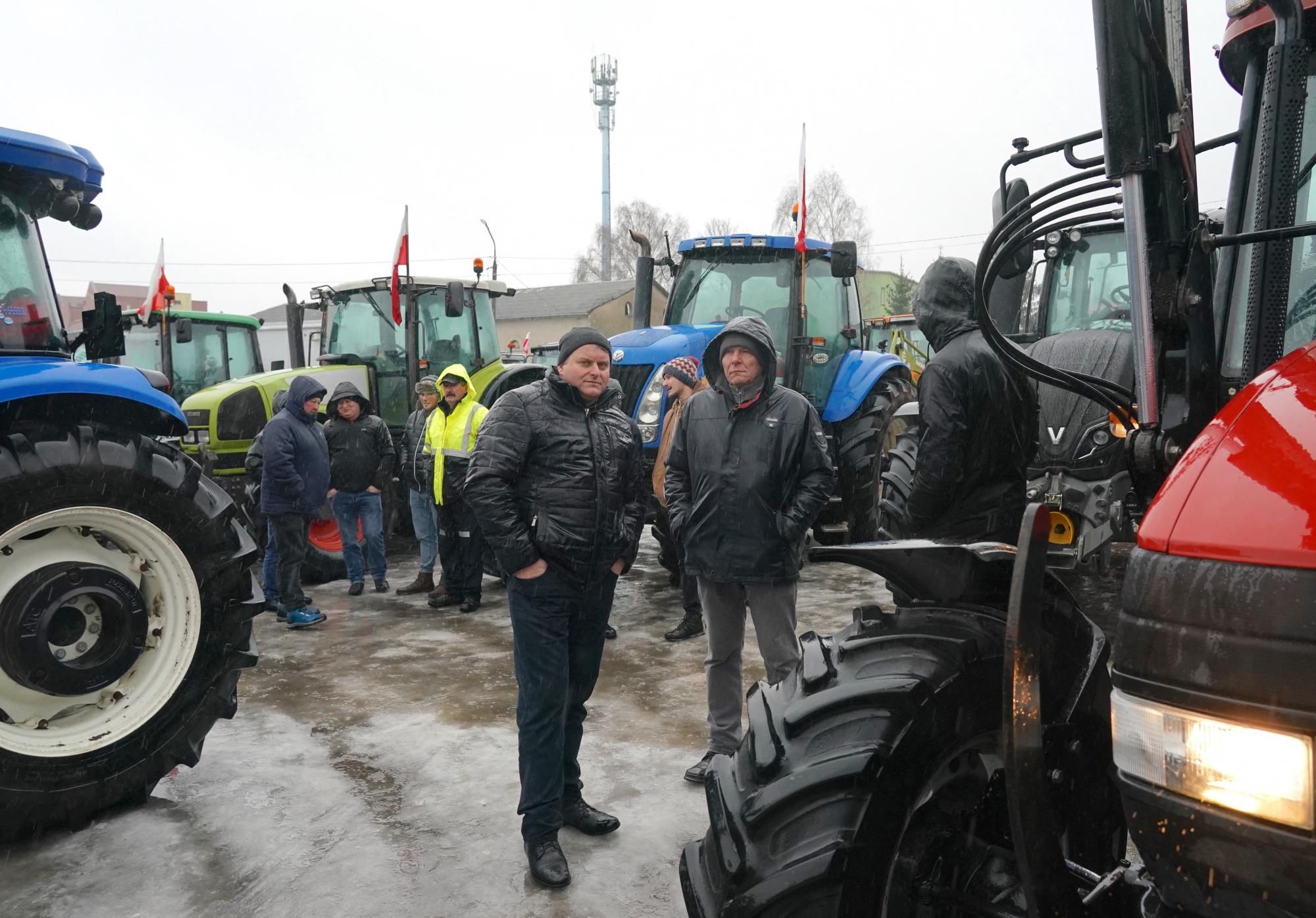
Polish protesters (photo: Getty Images)
Obviously, various conflicts from various grounds will accompany the entire process of negotiations on Ukraine's accession to the EU, which has not even started yet. The idea that for Ukraine to join the EU, it is enough to have just the will of European leaders (or even just the leaders of Germany and France as key EU states) is absolutely wrong, as this process does not work that way.
"Ukraine has a very complex process ahead, where the main problem will not be Poland but each of the 27 countries. Because these 27 countries will not want to negotiate on the basis of 'we have a war, so remove limits on fishing or something else, for us.' There will be hundreds of topics," said Pavel Koval, chairman of the Sejm Committee on Foreign Affairs, at a conference of the Mieroszewski Centre in Kyiv.
Likely, finding a way out of the current Polish-Ukrainian conflict on compromise terms will still be possible. But private economic interests of individual countries and stringent bureaucratic procedures on Ukraine's European path will always remain. "It's a club you want to join," comments RBC-Ukraine's source in one of the European structures. But membership in this club was, is, and will remain a strategic task for Ukraine.


